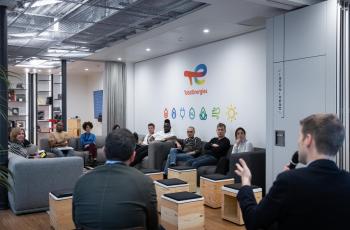TotalEnergies interacts closely with local communities in host countries where it operates, with a vision of shared prosperity based on three principles: dialogue and engagement with all host communities; assessing and reducing the impact of operations and contributing to local social and economic development that meets the needs of the communities.
TotalEnergies is actively involved in the economic development of the regions in which it operates:
- by supporting employment and the development of local businesses (local content);
- by contributing to local socio-economic development;
- by developing relationships with communities through development or general interest projects.
TotalEnergies promotes local employment and subcontracting where possible, contributes to community socio-economic development projects and encourages its employees to get involved with associations working in the public interest.
















